
Executive Producer
Four people decide to travel to Hunza, Pakistan to find paradise. Kentaro Tooma works as head of sales for a camera company. One of his clients is Jujo Togashi who owns the shop Camera Togashi. The two men are friends and become captivated by a picture with only a chair sitting in a field of grass. Kentaro and Jujo know of a 4-year-old boy Keisuke through Kentaro's eldest daughter. 4-year-old Keisuke is traumatized from being abused by his mother. Kishiko Shinohara is the owner of an antique shop. Kentaro Tooma has feelings for her.
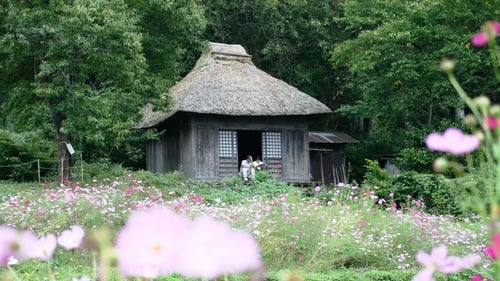
Executive Producer
As the film begins, Takao (Akira Terao) and Michiko (Kanako Higuchi) have already pulled up their Tokyo roots and moved to a village that is Takao's ancestral home. They visit a thatched cottage that serves as a memorial shrine (amidado) for the village dead and chat with the attendant, the spry 96-year-old Oume (Tanie Kitabayashi). Together they admire the view -- from an inspiring distance. Oume, it turns out, is a kind of sage, whose thoughts and observations are a popular feature in a column in a local newsletter. Her amanuensis is a mute, sweetly smiling young woman named Sayuri (Manami Konishi), who is as devoted to Oume as Oume is to the souls of her beloved dead.

Producer
When radicals from Japan's Red Army took a woman hostage in the resort town of Karuizawa, Nagano in 1972, Officer Atsuyuki Sassa was put in charge of diffusing the situation. But the task had its challenges. Upon arriving in mountainous Nagano, Sassa had to compete with freezing winter temperatures, conflicting opinions between the Tokyo Metropolitan Police and the Nagano Prefectural Police, as well as public opinion to gain entrance to the lodge that held the single woman captive.

Producer
Akira, a teacher from Tokyo, has just arrived in a small rural town to begin his new job. Soon after arriving, he meets, and begins to fall for, Miki, a papermaker and part of a large and unusual family. When he learns of an ancient legend that the family carries the curse of the Inugami, or Dog God, he brushes it off as silly superstition. After a series of mysterious deaths, however, the townspeople begin to grow restless, and Akira must confront the truth about Miki and her family.

Producer
Misawa é um samurai que não consegue encontrar emprego, mas que é um gênio da arte de lutar. Ao lado de sua mulher, ele é obrigado a parar em uma pequena hospedaria por causa de uma enchente. Vendo as péssimas condições do local, ele parte em busca de alimento para o povo, logo despertando a desconfiança de sua mulher, que não gosta que ele lute por dinheiro. Mesmo sem a conduta real de um samurai, é contratado para treinar a tropas do feudo local, despertando a inveja dos outros lutadores. Filmado após a morte de Akira Kurosawa, pelo seu fiel assistente de direção Takashi Koizumi. Um dos últimos roteiros do mestre oriental.
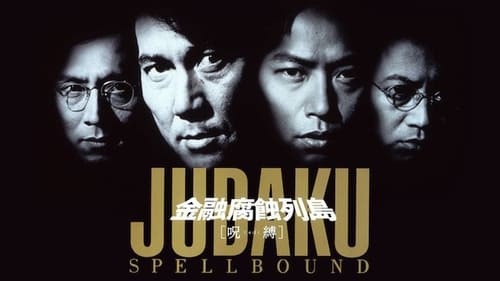
Producer
When a major bank is caught paying off a corporate extortionist, the media and prosecutors begin to dig, breaking open a money-and-favours scandal that threatens to rock the entire structure of business and government to its core. While the bank's top executives continue to vacillate, a quartet of middle-management reformers, led by straight-arrow Kitano (Koji Yakusho), decide to stage a boardroom coup and install a new, clean management team. With the aid of a hotshot news anchor (Miho Wada) and a hard-nosed prosecutor (Kenichi Endo), heads begin to roll.
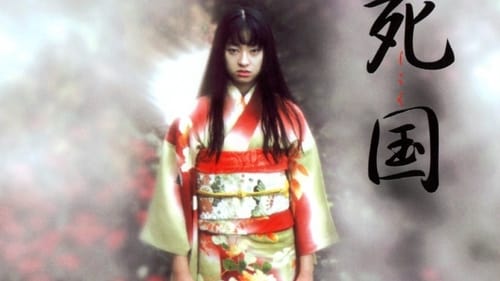
Producer
Years after moving to Tokyo with her parents, Hinako returns to her hometown in rural Shikoku. She soon learns that her childhood friend, Sayuri, died several years ago and that Sayuri's mother, who used to perform seances and exorcisms, has gone almost insane with grief. After seeing Sayuri's ghost several times during the night, Hinako consults with some local experts on the paranormal and discovers that Sayuri's mother has something planned for her daughter...
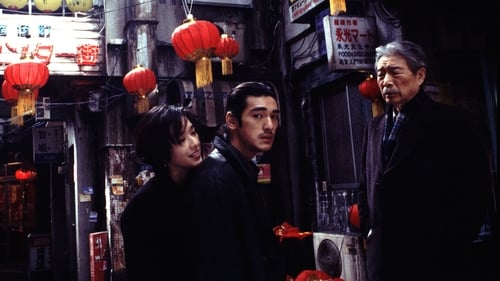
Producer
Kenichi is a half-Japanese, half-Chinese man of the underworld. You can sell him anything except children's organs. His domain is in Kabukicho, a gangland controlled by various Shanghai gangs intent on taking control. His former partner-in-crime, Fu-Chun, is rumored to have returned to Kabukicho, having fled years earlier after killing the number two of gangland boss, Yuan. Yuan wants to get even and attempts to do so by using Kenichi.

Producer
Kuki is a veteran newspaper reporter who has been shuffled off to a book-development branch and finds escape in an illicit relationship with Rinko. Together they find the passion no longer present in their marriages.

The tale follows the intentional non-adventures of quiet Tachibana (Takeshi Ito), a Tokyo drifter who has worked in a suburban sausage shop for several years without forging any real friendships.
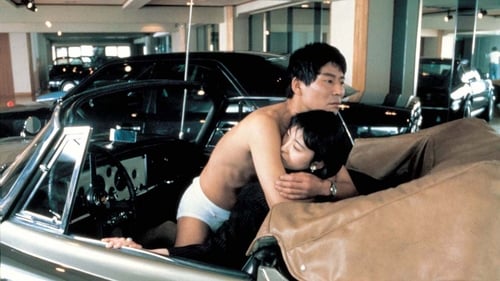
Producer
While pursuing his dream of having car sex, a goofy middle-aged man makes all the wrong moves and ends up enrolling in a number of crazy escapades.

Producer
Based on a semi-autobiographical story by Ogai Mori, about a Japanese medical student who goes to Berlin to study in the 1880s and falls in love with a German ballet dancer.

Producer

Producer
Karin has lived alone in a secluded mountain village with her consumptive mother since her father died. Her worried grandfather advises her to send her mother to a sanatorium and be adopted by him, although she refuses to accept. On the Buddhist All Soul’s Day Festival in August, a messenger from her grandfather pays a sudden visit to her house.
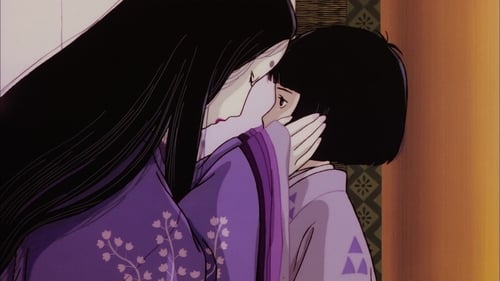
Producer
Genji, the son of the emperor, is the talk of the Kyoto nobility for his charm and good looks, yet he cannot stop himself from pursuing an unobtainable object of desire: his father's young and beautiful bride. Following the tragic consequences of his obsession, Genji wanders from one affair to another, always seeking some sort of completion to his life.
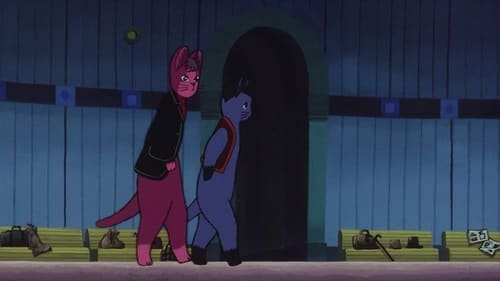
Producer
Giovanni é um garoto solitário de uma pequena cidade da colina, que ao ir buscar leite para sua mãe doente no dia do Festival Das Estrelas, encontra-se atravessando a Via Láctea em um trem a vapor mais rápido do que a luz com seu único amigo, Campanella. As estações que visitam em várias constelações, como os planetas explorados por St. Exupery em o "Pequeno Príncipe", oferecem aventuras curiosas e uma variedade de "tipos" humanos. Realidade e fantasia se chocam a bordo do trem e em suas suas viagens através dos anos-luz, por vezes, sugere a jornada pela vida. A história é contada em um ritmo lento, fazendo-o divagar em uma viagem de sonhos através do espaço e do tempo.

Producer
No Japão medieval, um velho senhor da guerra se aposenta, entregando seu império a seus três filhos. No entanto, ele subestima amplamente como o novo poder irá corrompê-los. O senhor de guerra japonês Hidetori Ichimonji decide que chegou o momento de se aposentar e dividir seu feudo entre seus três filhos. Seus filhos mai velho e do meio, Taro e Jiro, concordam com sua decisão e prometem apoiá-lo nos dias restantes de aposentadoria. O filho mais novo, Saburo, discorda de todos eles argumentando que há pouca probabilidade dos três irmãos permanecerem unidos. Insultado pela impaciência de seu filho caçula, o senhor da guerra o expulsa. Quando o senhor da guerra começa sua aposentadoria, ele rapidamente percebe que seus dois filhos mais velhos são egoístas e não têm intenção de cumprir suas promessas. Isso leva à guerra e só o banido Saburo pode salvá-lo.
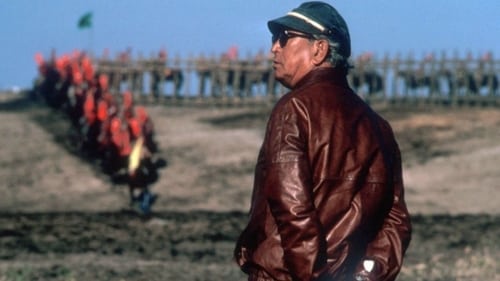
Associate Producer
In 1985, Chris Marker traveled to Japan to attend the filming of Ran, directed by Akira Kurosawa. Marker analyzes the progress of filming; the infinite patience of a team under the orders of a meticulous director down to the smallest detail; the antithetical mixture of the modern with the traditional; of the real with the fictitious; of life with cinema… and literature.

Self
In 1985, Chris Marker traveled to Japan to attend the filming of Ran, directed by Akira Kurosawa. Marker analyzes the progress of filming; the infinite patience of a team under the orders of a meticulous director down to the smallest detail; the antithetical mixture of the modern with the traditional; of the real with the fictitious; of life with cinema… and literature.

Producer
In 1923 a Japanese comes to Munich and immediately falls in love with a street artist with a red hat, without knowing her past is. She turns to the Japanese, for the first time she thinks she has found her really great love- exotic stranger attracts her. They say a lot, but they do not understand each other - but they can show their love. Nevertheless, the relationship is doomed to failure from the beginning. Disappointment, death and loss.
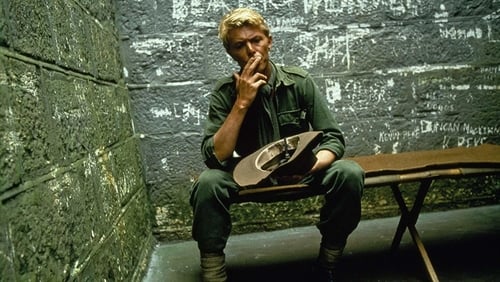
Executive Producer
David Bowie incorpora o major Celliers, um oficial britânico mantido pelos japoneses como prisioneiro de guerra. O comandante está obcecado com o misterioso loiro estranho, enquanto o tenente-coronel britânico Lawrence tenta superar as diferenças emocionais e linguísticas entre ele e seu captor.

Cinematography
In 1971, Hara Masato and a group or actors started shooting his 16mm film, The First Emperor, based on an old Japanese book about history and myths that is known as the Kojiki ('Record of Ancient Matters'). He did not finish the film.



















